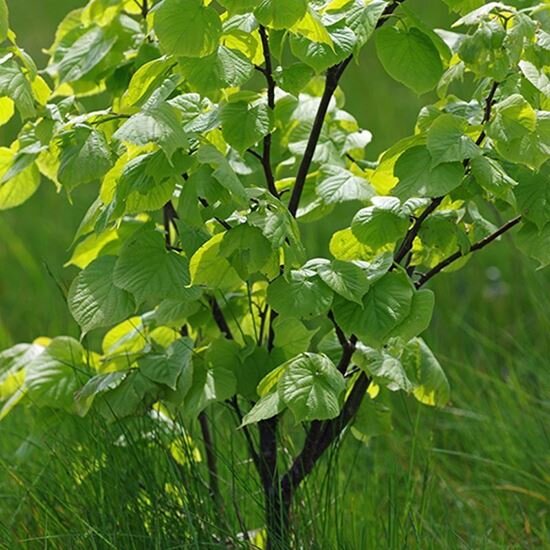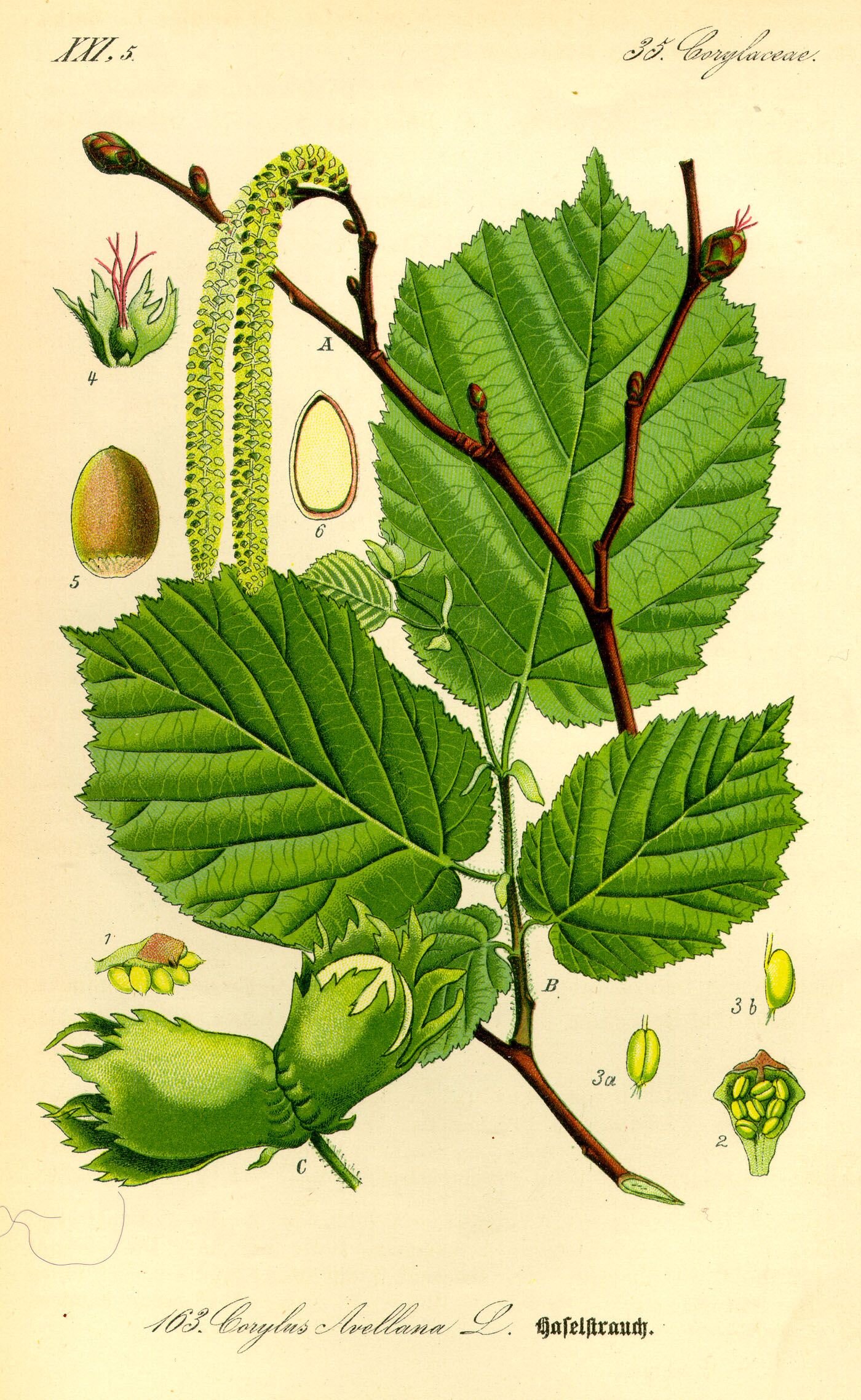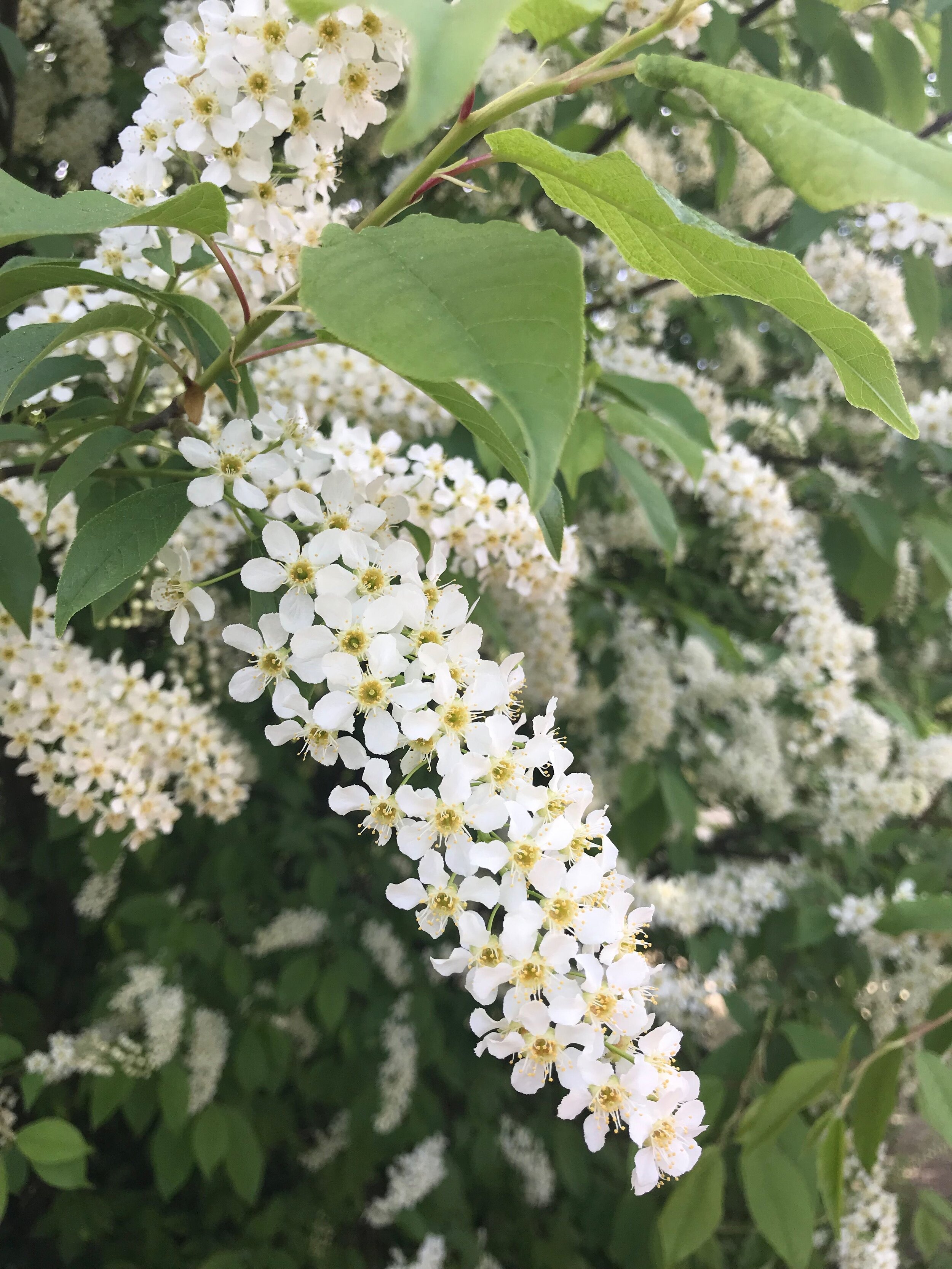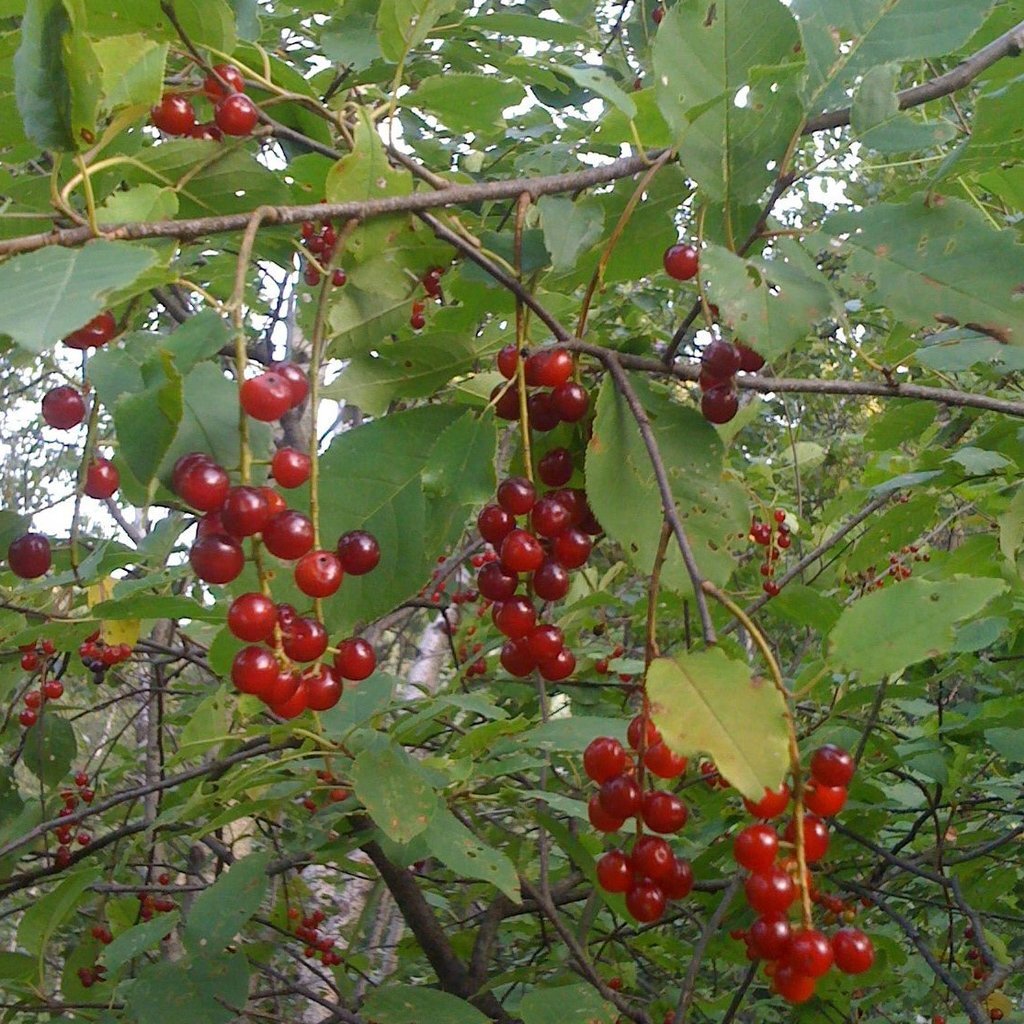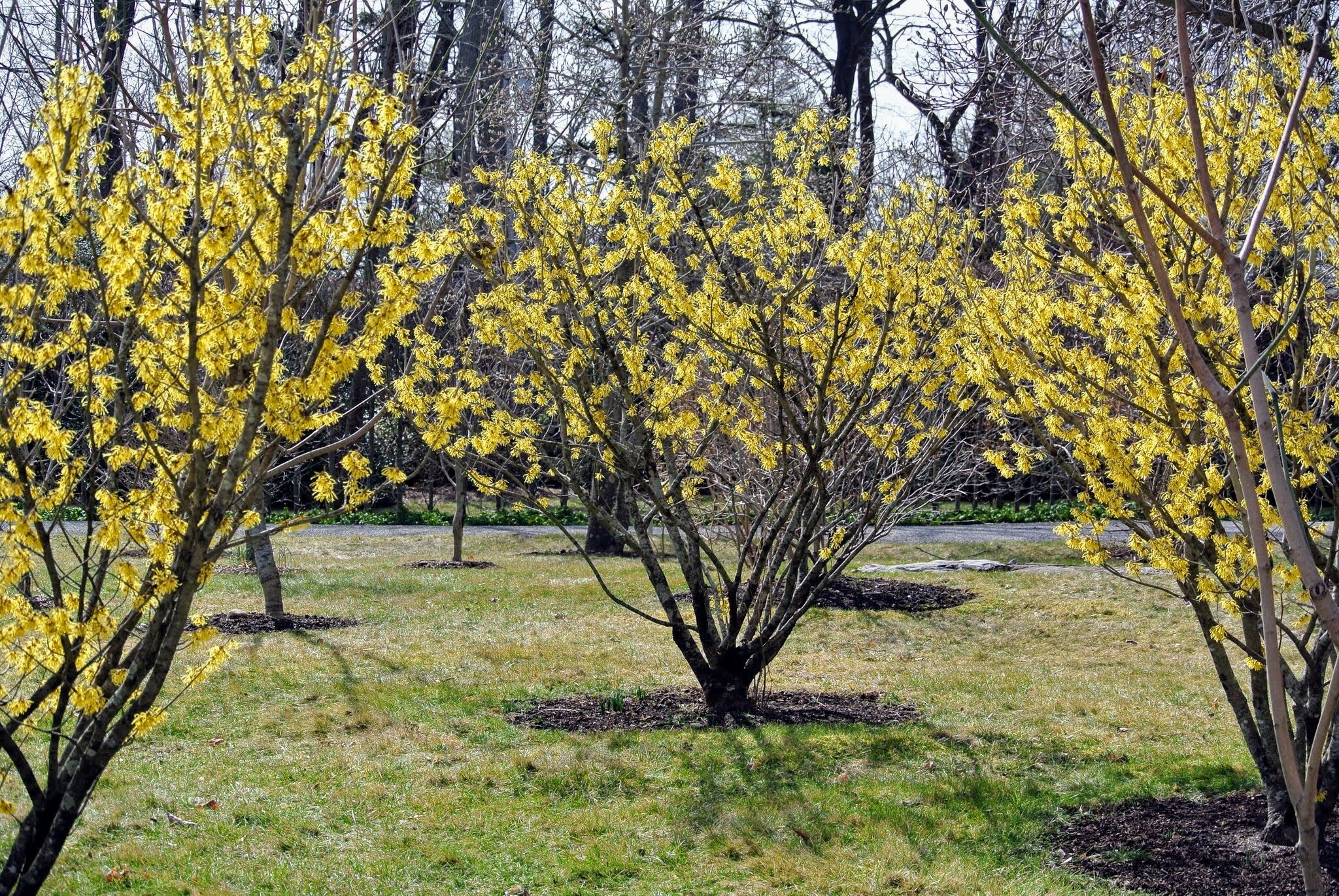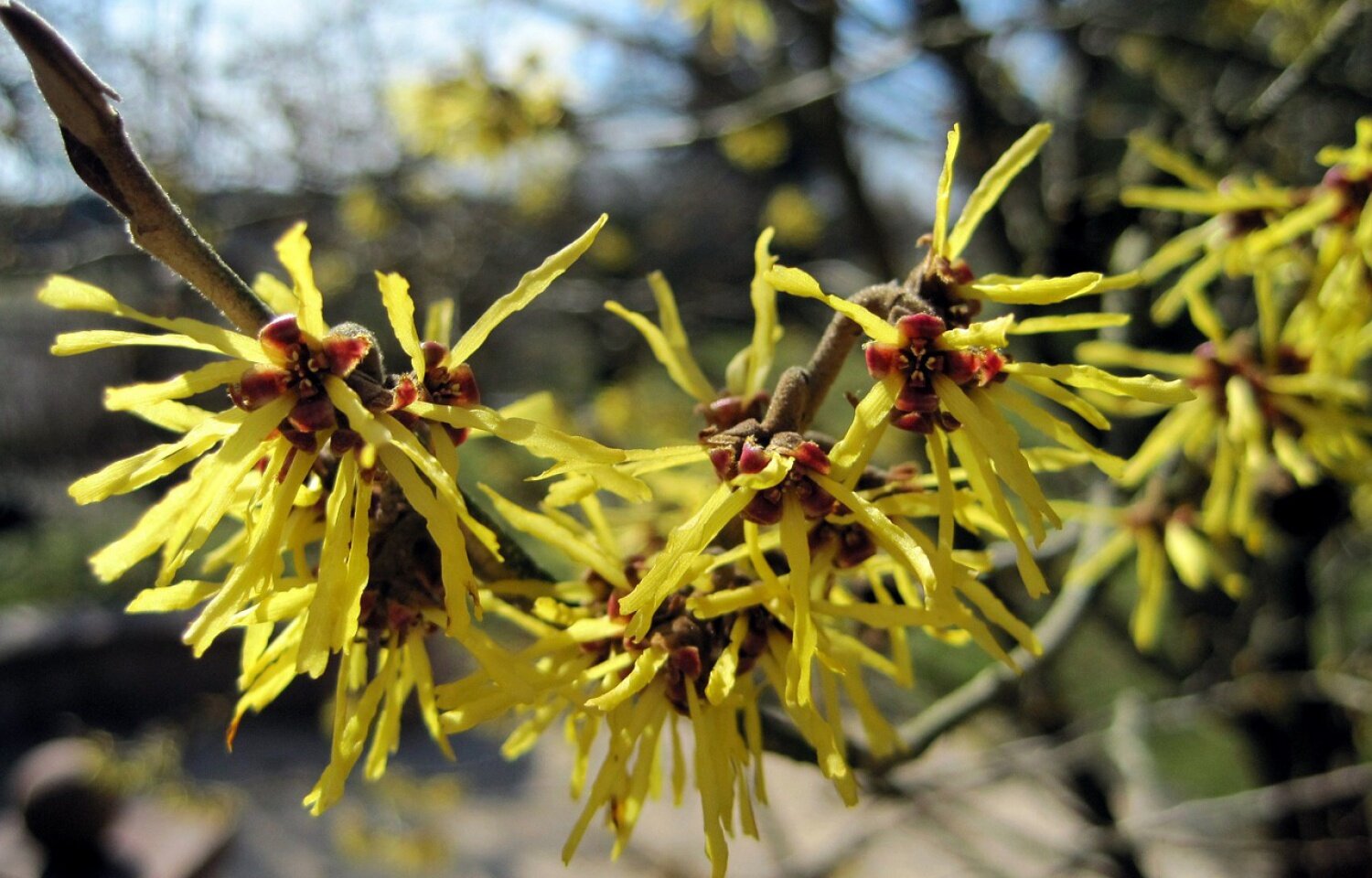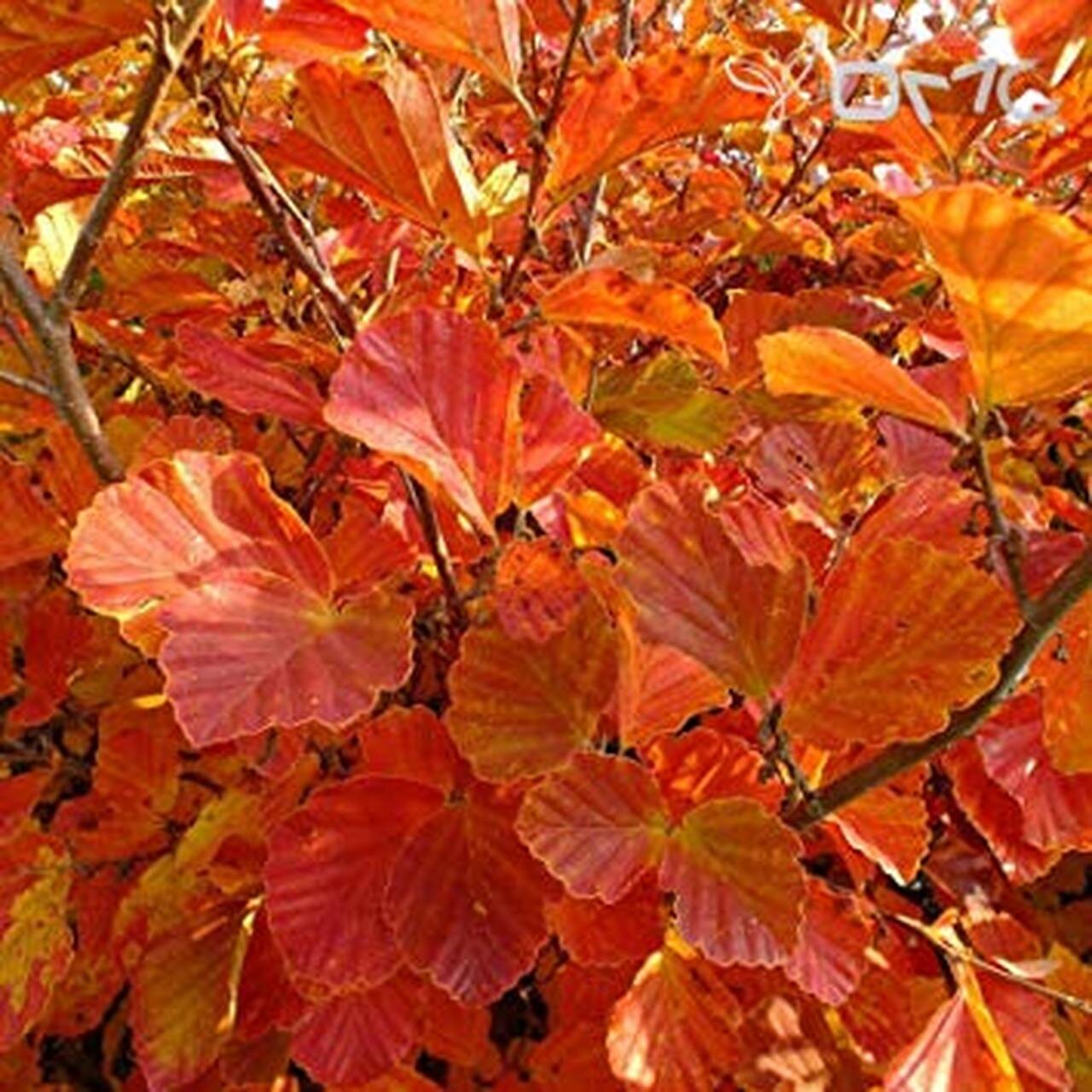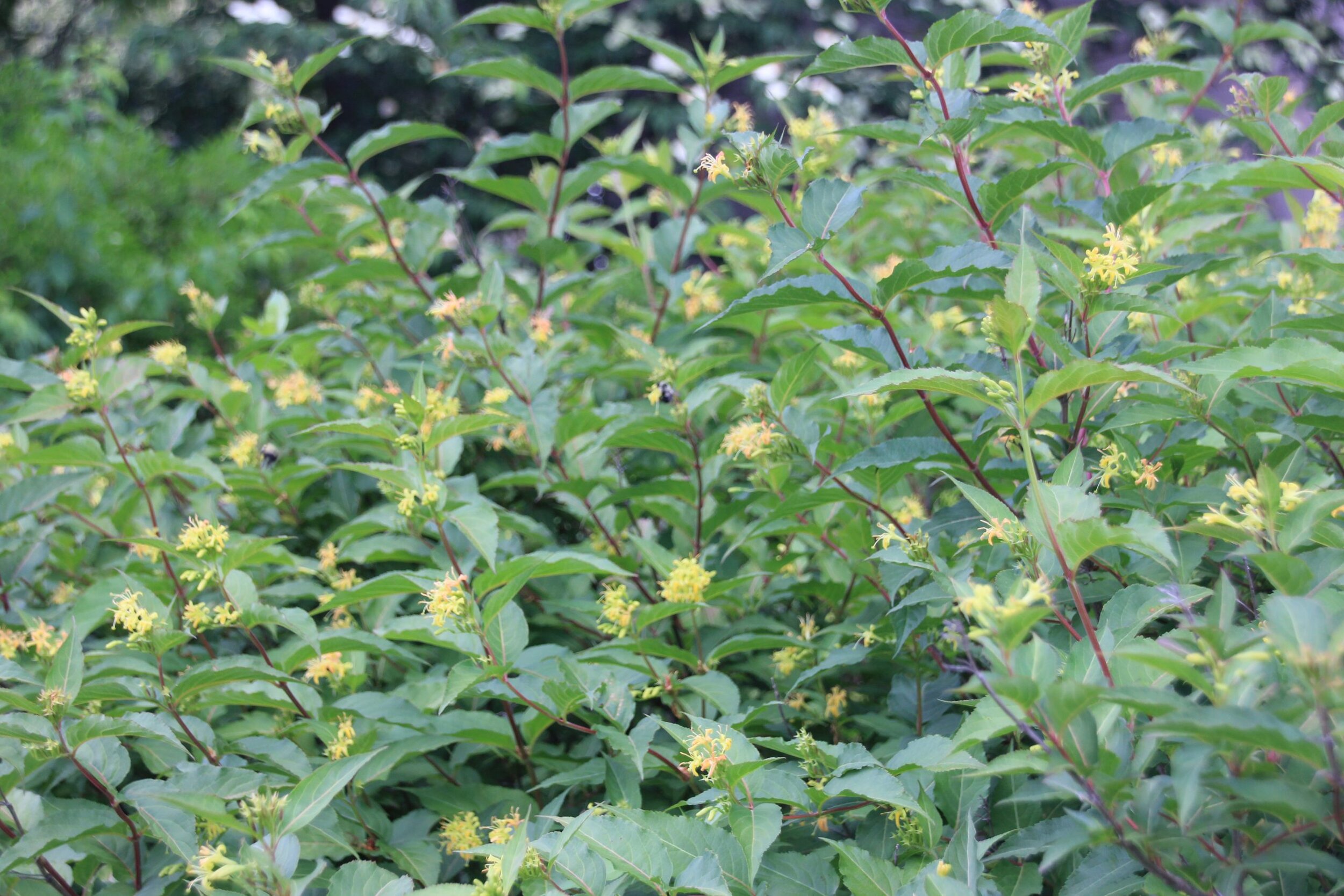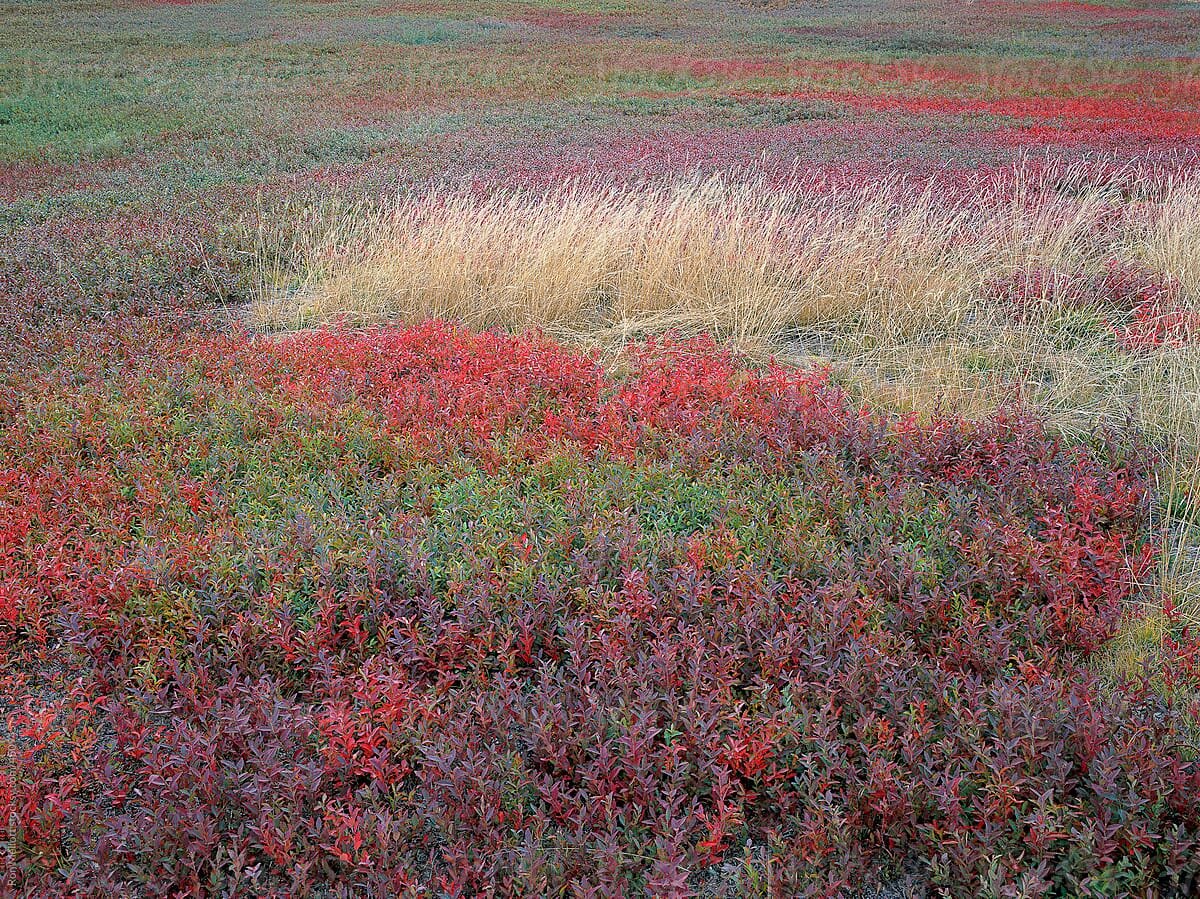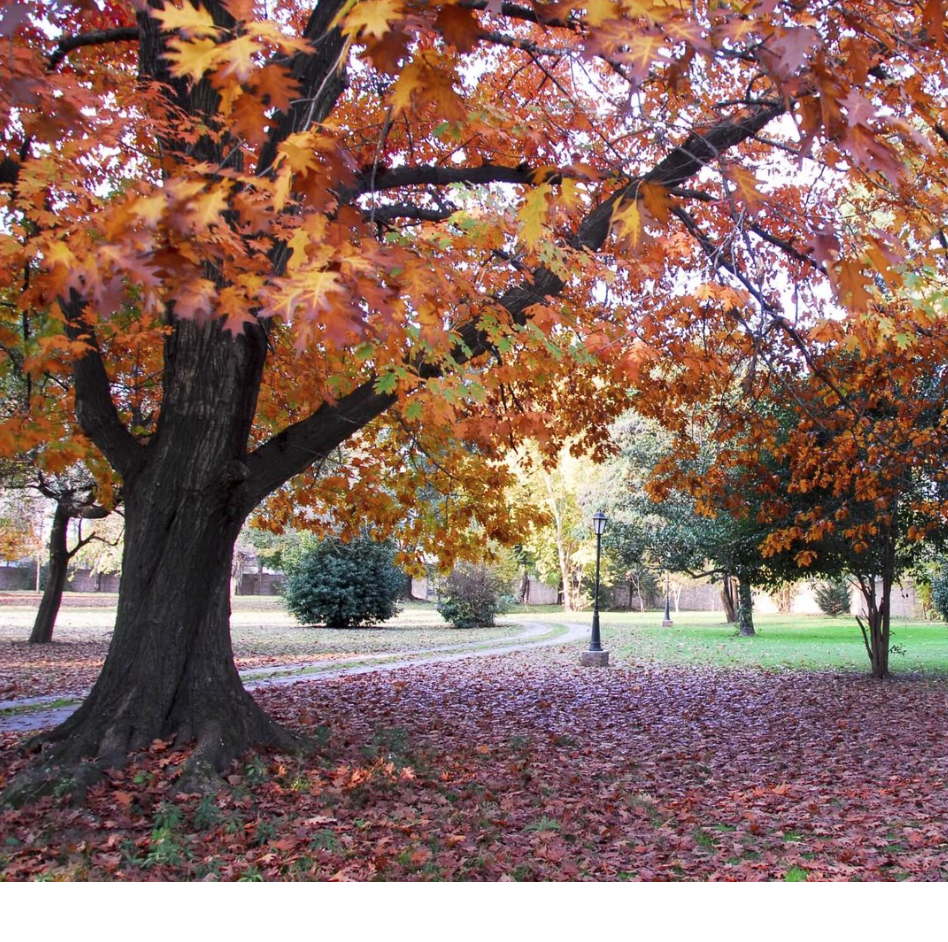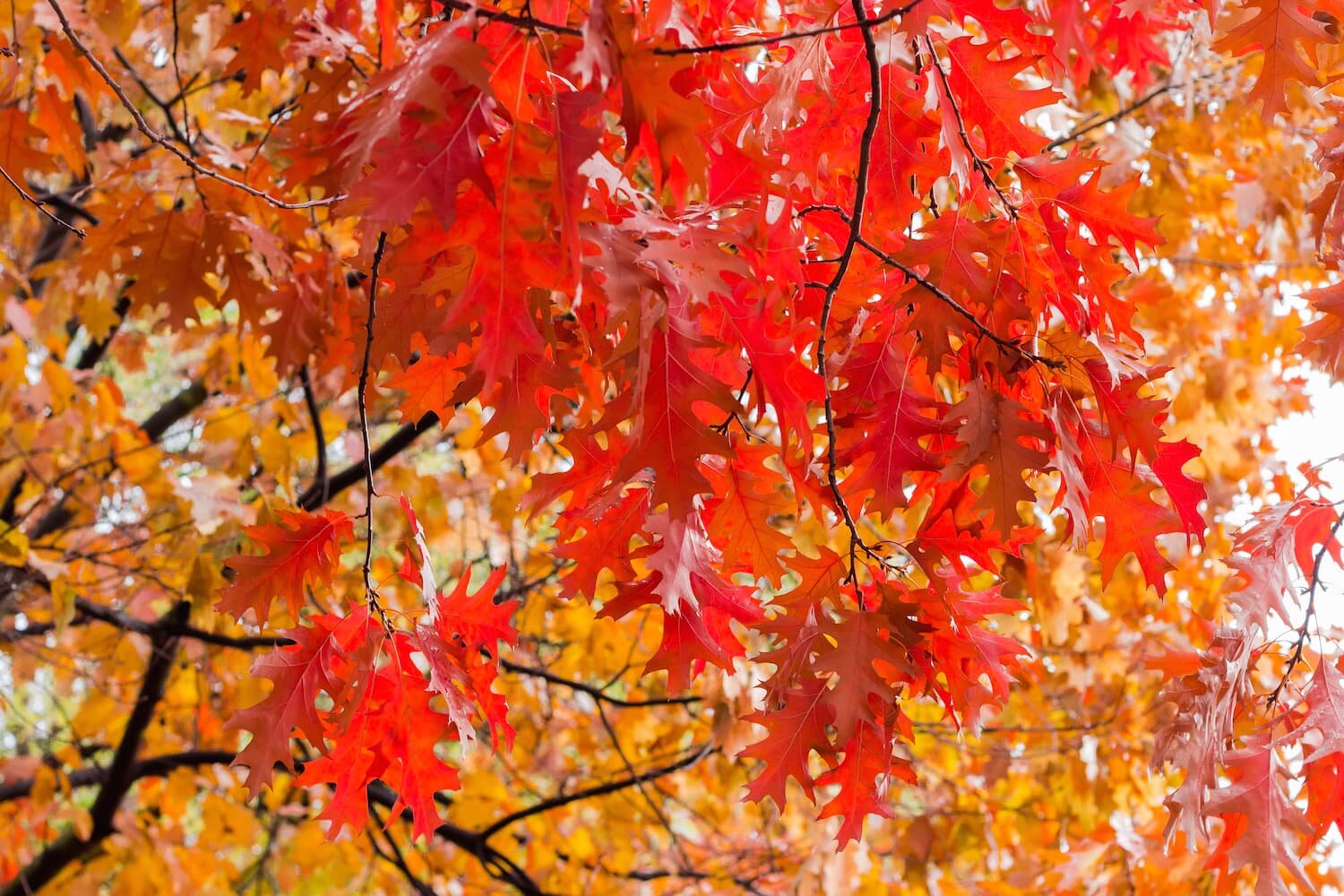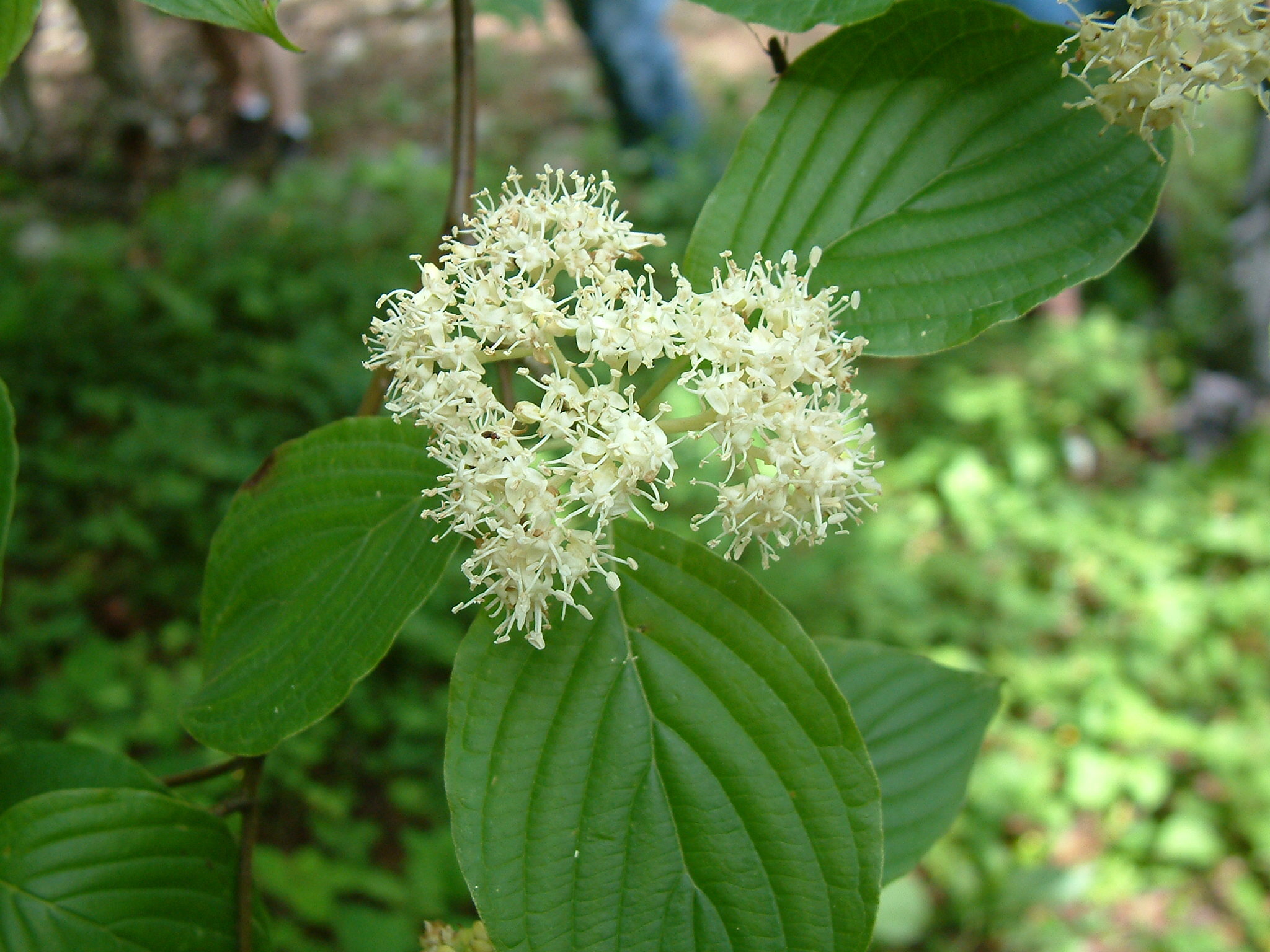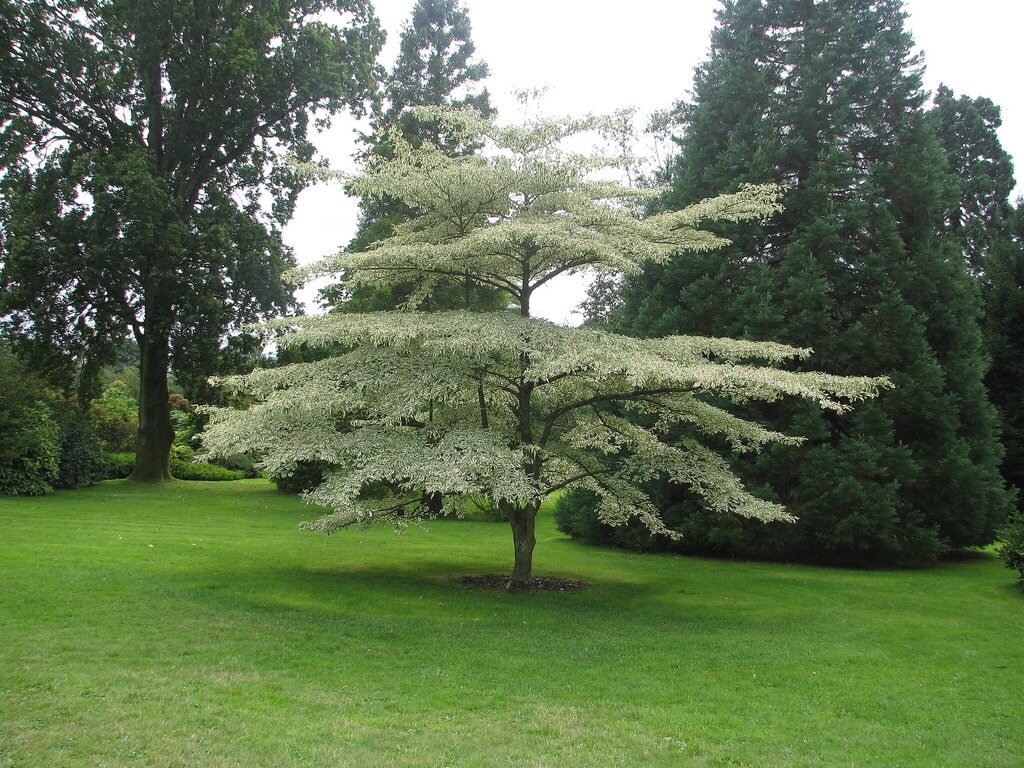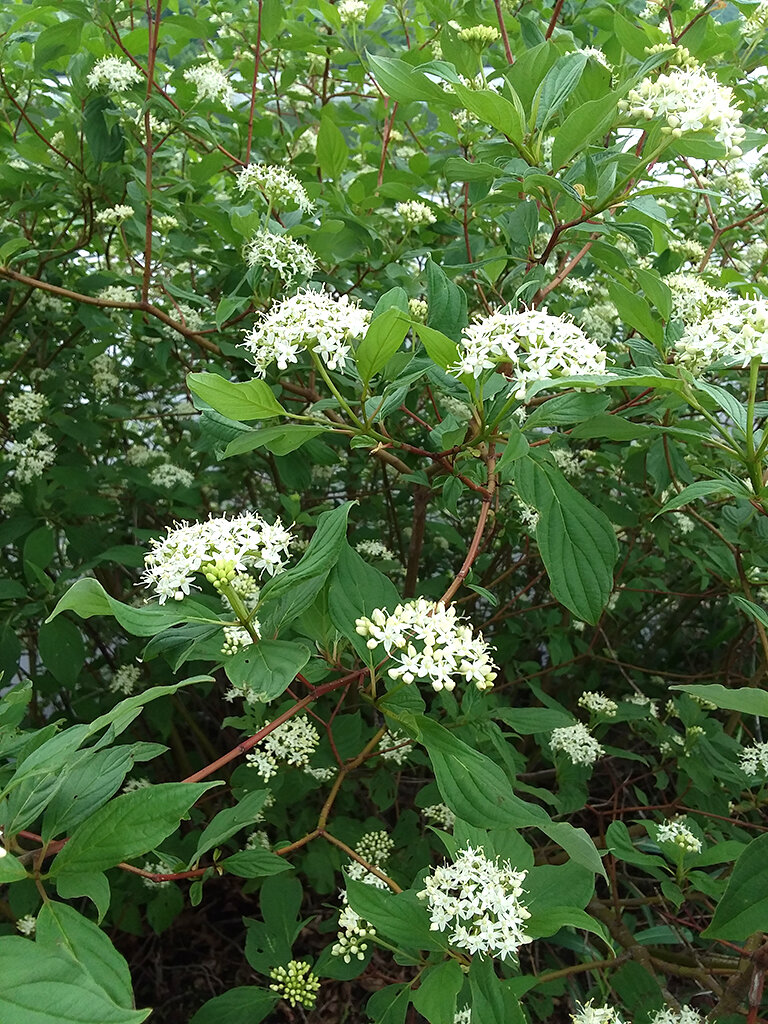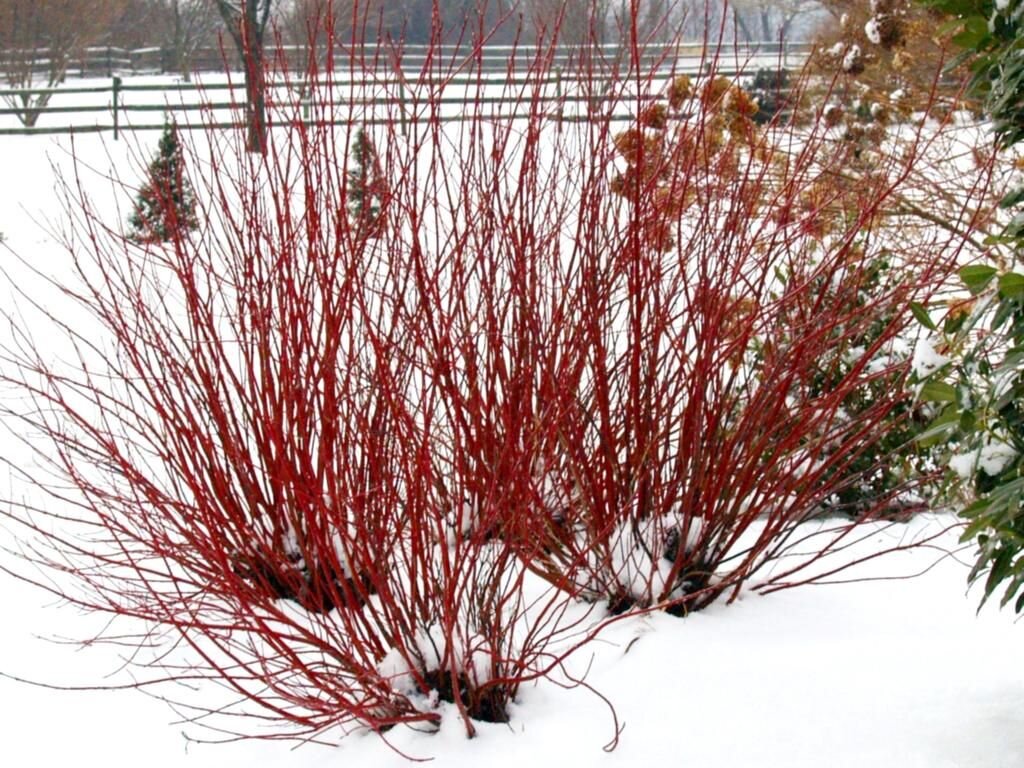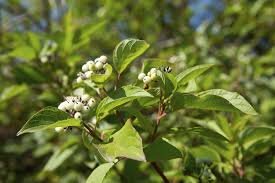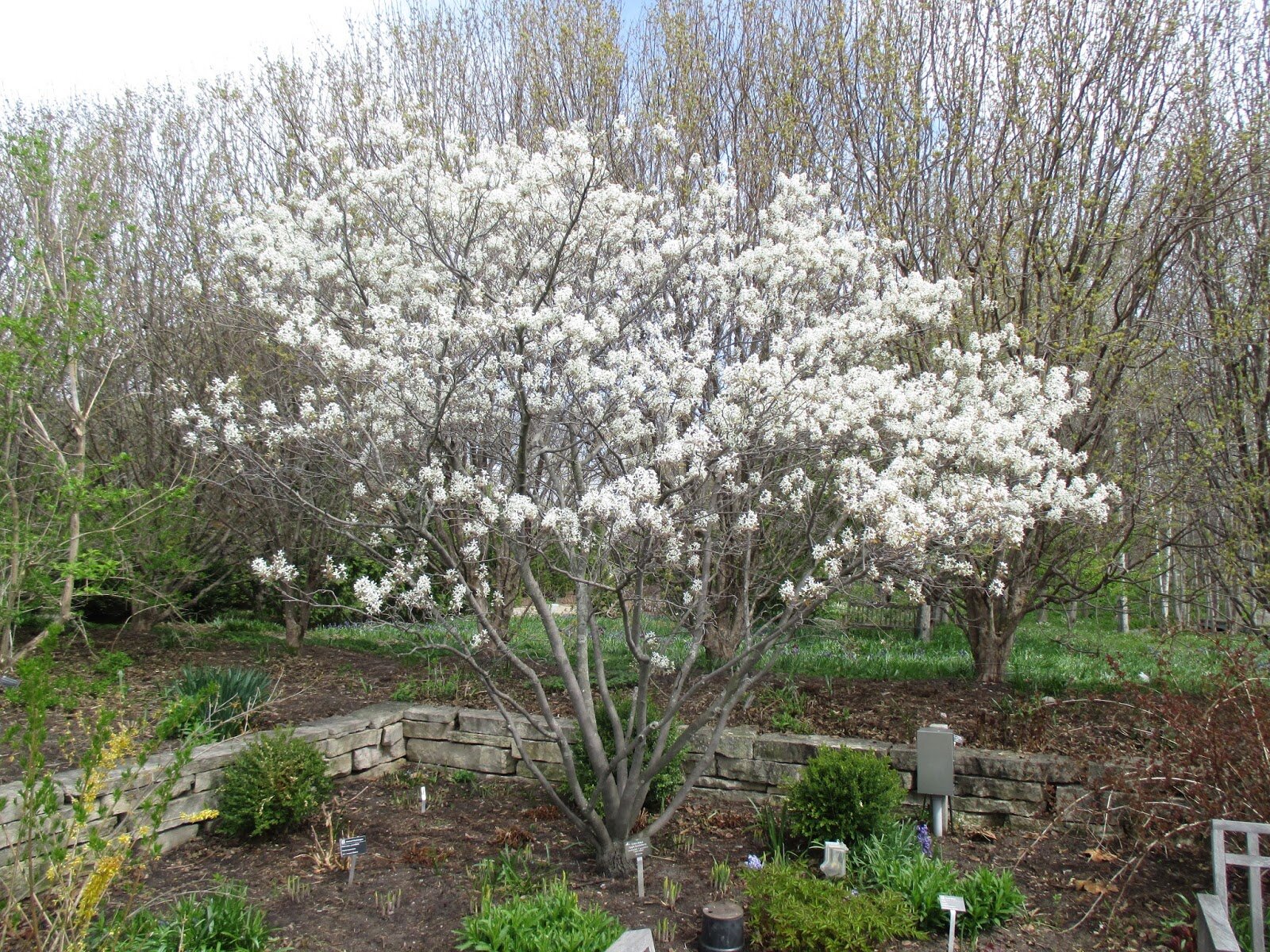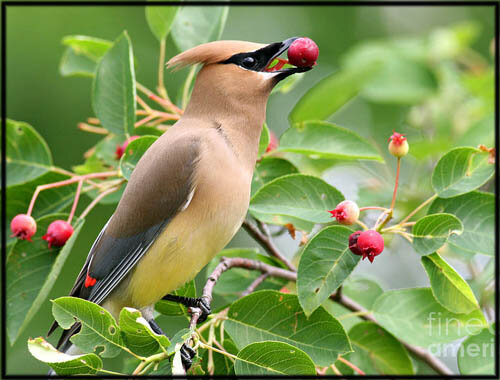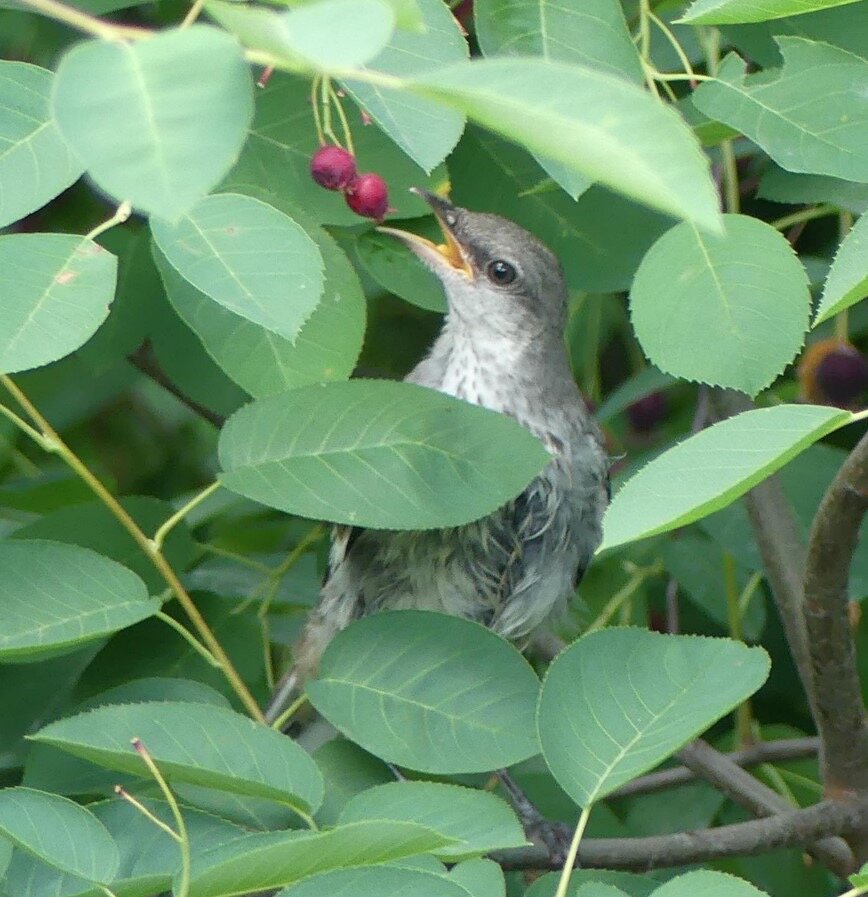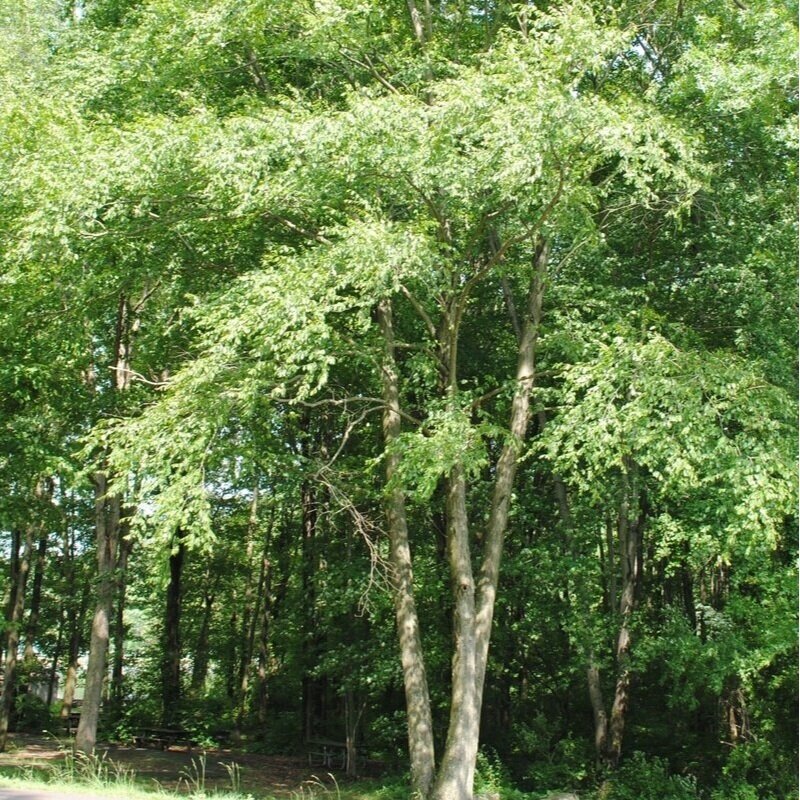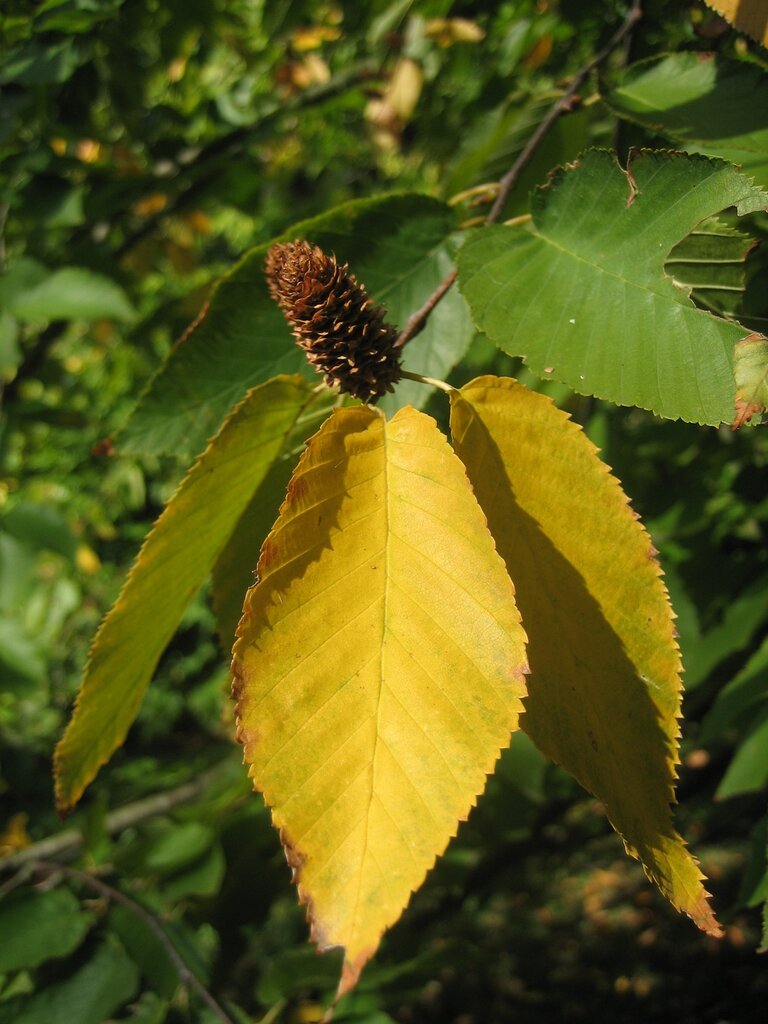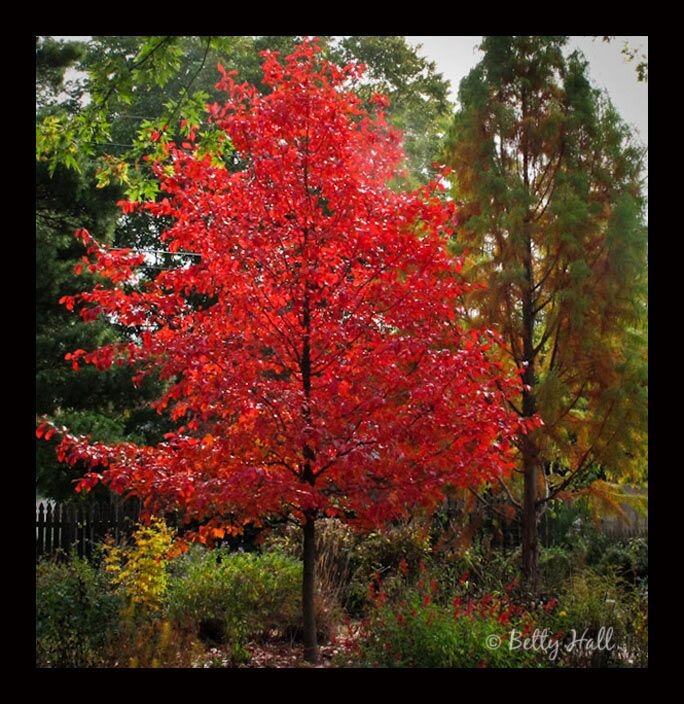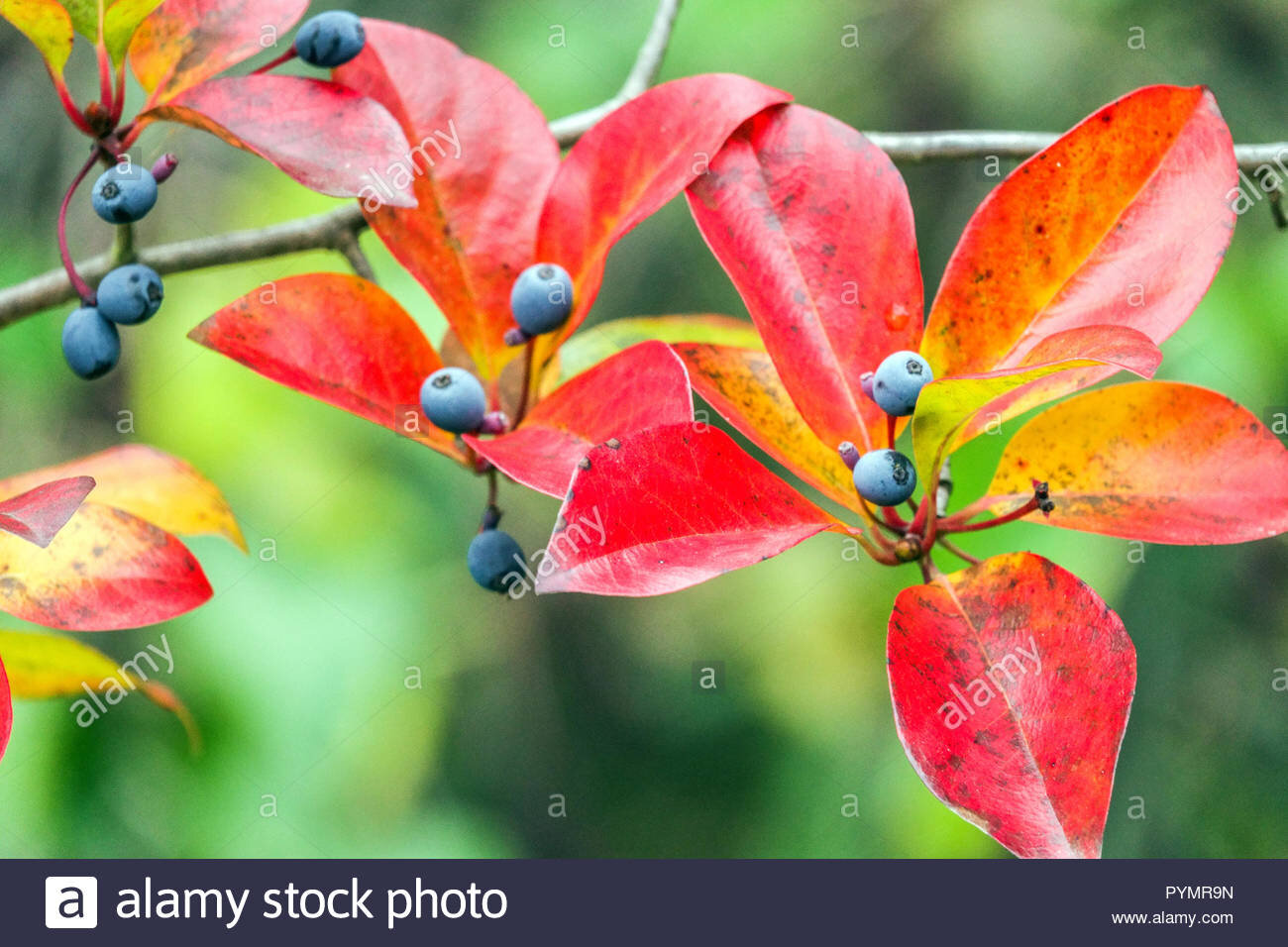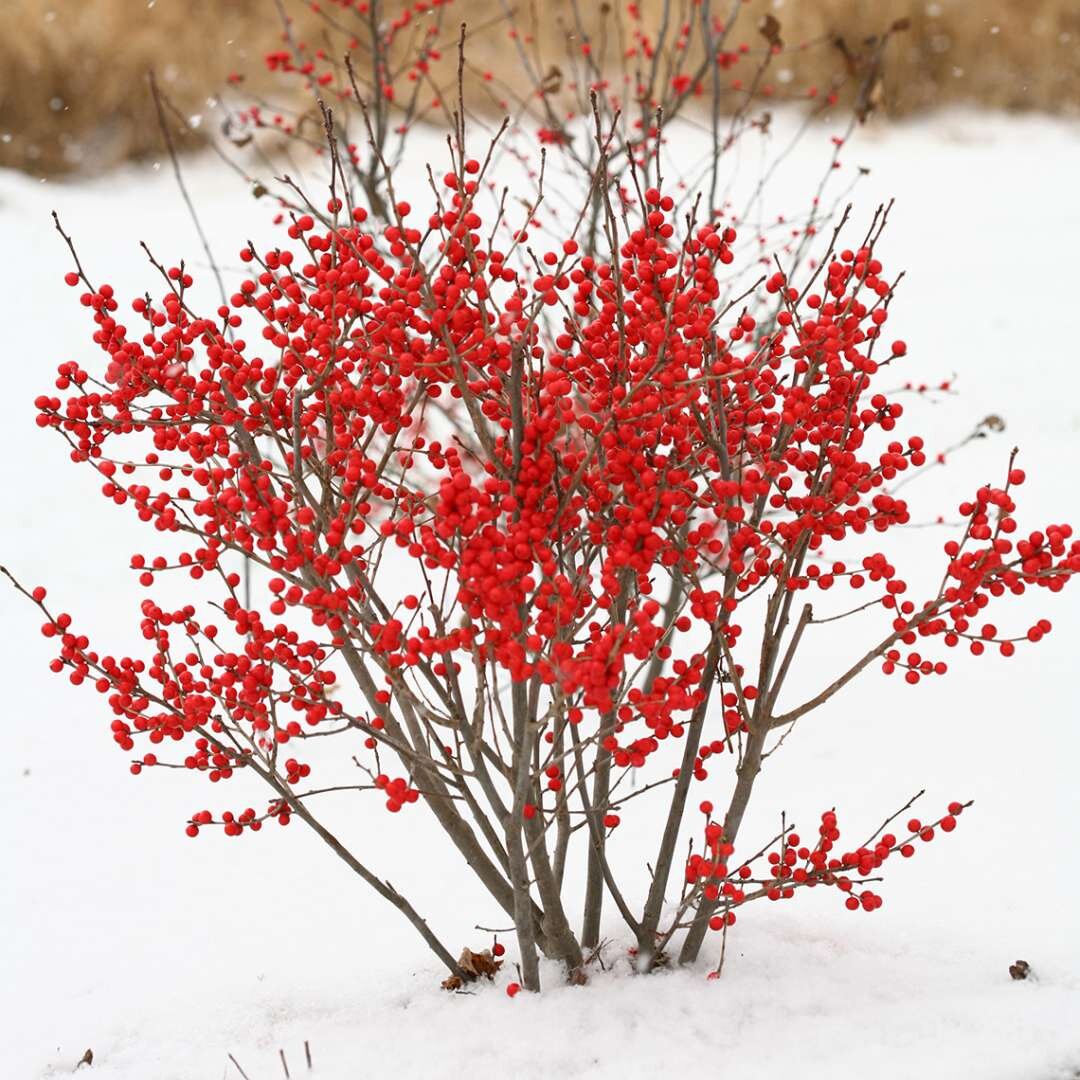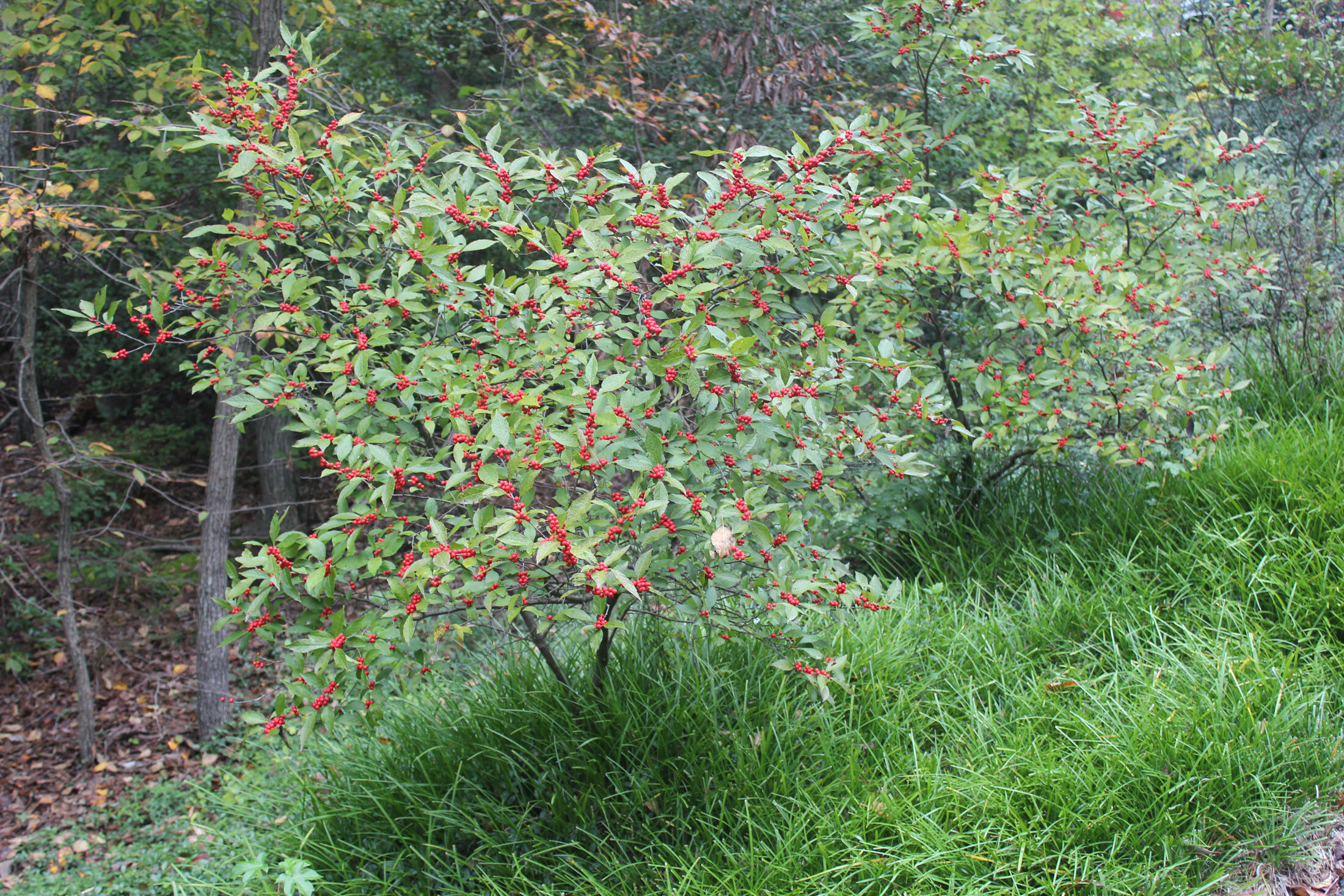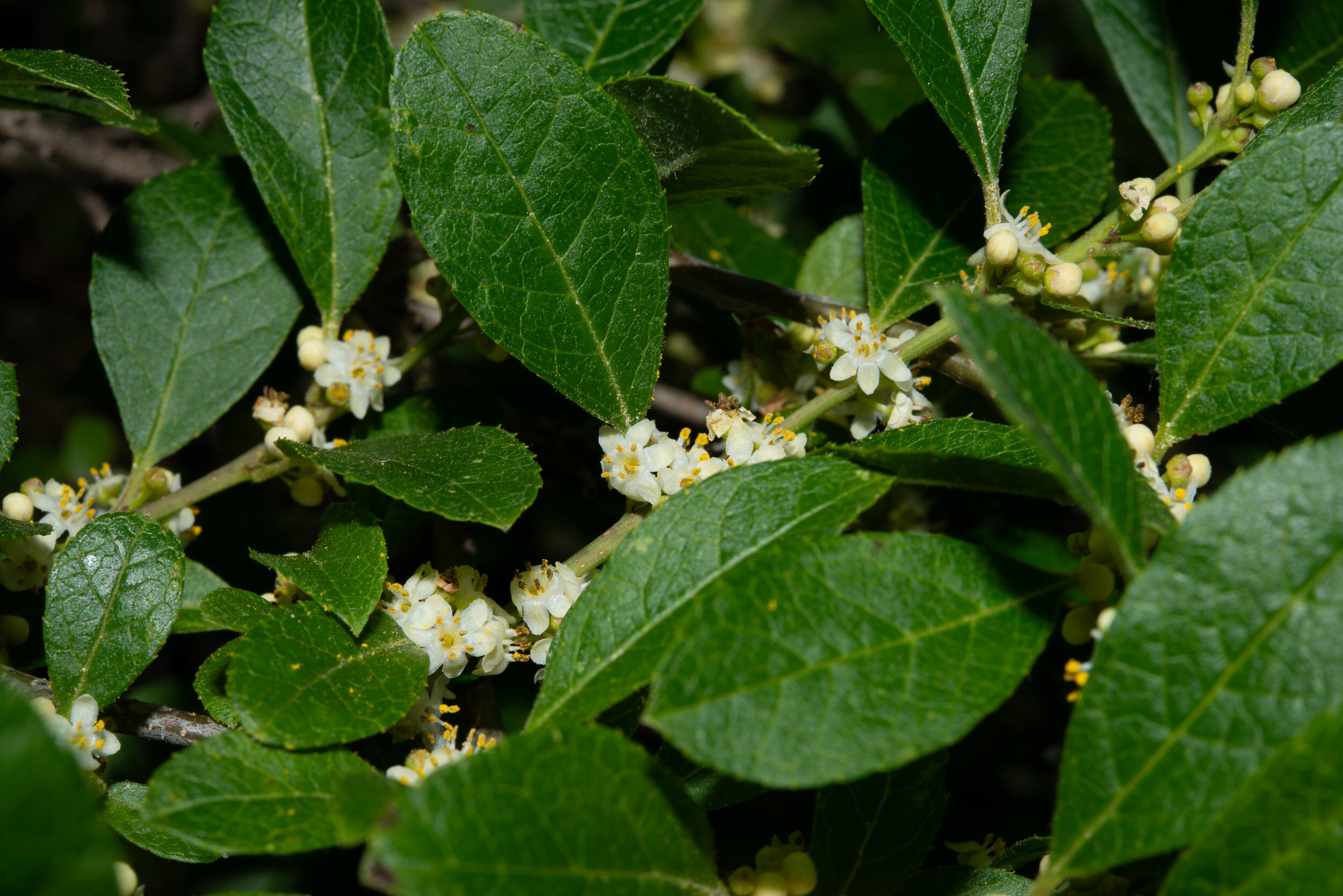Partial Sun/Shade & Dry Soil
These trees and shrubs love dry soil and a variation of sun and shade!
If you’re interested in purchasing native plants, contact us for availability at administration@aspetucklandtrust.org
Each Shrub and Tree is sold in a 1, 2, 3, or 6 gallon pot.
American Hazelnut (Corylus americana)
1 gallon pot
Fall color; Attracts: 🐦
Sun: Adaptable to a wide range of sun conditions
Soil: Adaptable to any soil
If the fauna of New England held a little popularity contest for “favorite shrub,” you can bet American Hazelnut would be one of the top contenders. A whole host of insects will munch on the leaves, while the nuts provide a tasty snack to our mammalian and avian friends. This shrub will be happiest on the wood’s edge and should be planted in multiples to ensure pollination. You can expect the fruit within 2-3 years after planting. 15’ tall.
Choke Cherry Tree (Prunus virginiana)
3 gallon pot
Fall berries; Attracts: 🐝 🦋 🐦
Sun: Part sun/shade (4-6 hours of direct sun per day)
Soil: Adaptable to any soil
Chokecherry is widely regarded as an important wildlife food plant and provides habitat, watershed protection, and species diversity.Chokecherry is remarkably shade tolerant and has impressive resilience under variable growing conditions. A large, deciduous shrub or small understory tree, choke cherry grows 20-30 ft. tall and often forms thickets. Dense clusters of white flowers are followed by red fruit ripening to dark purple from August to September (north).
Common Witchhazel Shrub (Hamamelis virginiana)
3 gallon pot
Fall Color; Attracts: 🐝 🐦 🦋
Sun: Part sun/shade (4-6 hours of direct sun per day)
Soil: Adaptable to any soil
If you have visited Gilbertie’s Farm before, surely you have noticed the field of witch hazel growing on the left as you approach the barn. This witch hazel is used in a variety of cosmetics. The plant itself, is easy going and is multi-stemmed and wide by nature, but can take significant pruning. Among pollinator fanatics, the plant is perhaps best know for its late season yellow flowers which provide crucial food when little else is blooming. 15’-20’, great for the wood’s edge.
Dwarf Bush Honeysuckle Shrub (Diervilla lonicera)
3 gallon pot
Fall Color; Attracts: 🐝 🦋
Sun: Part sun/shade (4-6 hours of direct sun per day)
Soil: Prefers dry, gravelly, sandy soil
If you have a steep hill on your property, or a hot, dry area, or even a marshy low spot you don't know what to do with, try the native ground cover shrub with a bounty of eye-catching yellow summer blooms. Butterflies, birds and honeybees all love it. Hummingbirds will soon consider your yard their favorite place in the neighborhood! 3’ tall.
Highbush Blueberry Shrub (Vaccinium corymbosum)
2 gallon pot
Fall Color; Attracts: 🐝 🐦
Sun: Part sun/shade (4-6 hours of direct sun per day)
Soil: Adaptable to any soil
Whether you’re interested in Highbush Blueberry for spring’s delicate white flowers, summer’s rewarding fresh fruit or fall’s vibrant red color you won’t be disappointed! These shrubs will do well in moist sunny areas, but aren’t too picky. This plant will attract over 30 species of birds! For more plentiful and larger fruit, Highbush Blueberries should be planted in multiples. They can self-pollinate, but benefit from cross pollination. 6'-12’.
Low Bush Blueberry Shrub (Vaccinium angustifolia)
1 gallon pot
Attracts: 🐝 🐦
Sun: Part sun/shade (4-6 hours of direct sun per day)
Soil: Adaptable to any soil
A low, straggling shrub, usually 6 in. to 2 ft. tall and wide. Multiple stems; twiggy branches. Glossy foliage turns from red-green in spring to dark blue-green in summer to maroon-purple in fall. Small, white, pink-tinged, bell-shaped flowers are followed by edible blue fruit. The berries are relished by wildlife and humans alike.
Meadowsweet Spirea Shrub (Spiraea alba)
1 gallon pot
Fall Color; Attracts: 🐝 🦋
Sun: Part sun/shade (4-6 hours of direct sun per day)
Soil: Adaptable to any soil
White Meadowsweet grows 3-6 ft tall in a variety of habitats. You can find it growing on many sites with nearly full sun. Although this shrub seems to prefer moist soil, it can also be found in fairly well-drained soil.
Northern Bayberry Shrub (Myrica pennsylvanica)
2 gallon pot
Attracts: 🐦
Sun: Part sun/shade (4-6 hours of direct sun per day)
Soil: Prefers dry, gravelly, sandy soil
With its versatile nature, elegant foliage and bird-attracting fruit, who would hesitate to add bayberry to their property? Growing in a round shape, this shrub will grow about 6’ by 6’. Deep blue berries in late summer will persist well into winter, providing crucial food to our birds . Plus, did we mention you can make a delicious bayberry tea from the leaves?
Northern Red Oak Tree (Quercus rubra)
3 gallon pot
Attracts: 🦋 🐦
Sun: Adaptable to a wide range of sun conditions
Soil: Adaptable to any soil
Bristle-tipped leaves turn red in the fall. The leaves have 7 to 11 waxy lobes. A good street tree, tolerates pollution and compacted soil. Grows as much as two feet a year for 10 years. Grows to 60' to 75'.
Pagoda Dogwood Tree (Cornus alternifolia)
Large 6-gallon pot
Attracts: 🐦 🦋
Sun: Part sun/shade (4-6 hours of direct sun per day)
Soil: Adaptable to any soil
Pagoda dogwood is an excellent native plant for the four season garden. The unique horizontal branching pattern has a distinct tiered habit, often catching snow in the winter. Clusters of white flowers show up in spring, dark green foliage turns a beautiful burgundy-red in fall, and blue-black berries attract many birds. Pagoda dogwood makes an excellent small tree or large shrub in a shade garden. 15-25' tall.
Red Twig Dogwood (Red-Osier Dogwood) Shrub (Cornus sericea)
3 gallon pot
Fall Color & Fruit; Attracts: 🐦 🦋
Sun: Part sun/shade (4-6 hours of direct sun per day)
Soil: Adaptable to any soil
Though it boasts four-season interest—with fragrant flowers, tiny berries birds love and showy foliage—the red twig dogwood saves its best for winter, when its stems are on fire. 6-8' tall.
Shadbush (Serviceberry) Shrub (Amelanchier canadensis)
3 gallon pot
Fall Color & Fruit; Attracts: 🐦 🦋
Sun: Adaptable to a wide range of sun conditions
Soil: Adaptable to any soil
Is one of the finest small trees for fall color, with leaves turning vivid shades of red and gold. The fruit this tree produces is loved by birds. Full sun and partial shade are best for this tree, meaning it prefers a minimum of four hours of direct, unfiltered sunlight each day. 10-15’.
Sweet Black Birch Tree (Betula lenta)
3 gallon pot
Fall Color; Attracts: 🐦
Sun: Adaptable to a wide range of sun conditions
Soil: Adaptable to any soil
Sweet (black) birch is resistant to bronze birch borer,. Exhibits the best fall color of the birches, 50-75' tall. High wildlife value.
Tupelo / Blackgum Tree (Nyssa sylvatica)
3 gallon pot
Fall Color; Attracts: 🐦 🦋
Sun: Adaptable to a wide range of sun conditions
Soil: Adaptable to any soil
One of the most attractive native trees around. Summer leaves are a dark green with a high-gloss appearance, but the most spectacular part of this tree is the fall foliage with many shades of yellow, orange, bright red, purple or scarlet that may appear on the same branch. 30-50' prefers well drained soil.
Winterberry - Female (Ilex verticillata)
2 gallon pot
Fall color & berries; Attracts: 🐦
Sun: Adaptable to a wide range of sun conditions
Soil: Adaptable to any soil
Extremely showy in late fall and early winter when covered with their bright red fruit, these shrubs are either male or female--a trait typical of the holly family. Birds are readily attracted to them. Since this shrub grows in both wet and dry sites, it is an adaptable naturalizer.
Winterberry – Male “Jim Dandy” Shrub (Ilex verticillata)
3 gallon pot
Fall color but NO berries; Attracts: 🐦 🦋
Sun: Adaptable to a wide range of sun conditions
Soil: Adaptable to any soil
Jim Dandy is a male plant and is generally grown only as a pollinator for female winterberry plants to produce berries. One Jim Dandy will generally be sufficient for pollinating 9-10 female plants. Prune to shape in early spring just before new growth begins.
If you’re interested in purchasing native plants, contact us for availability at administration@aspetucklandtrust.org


